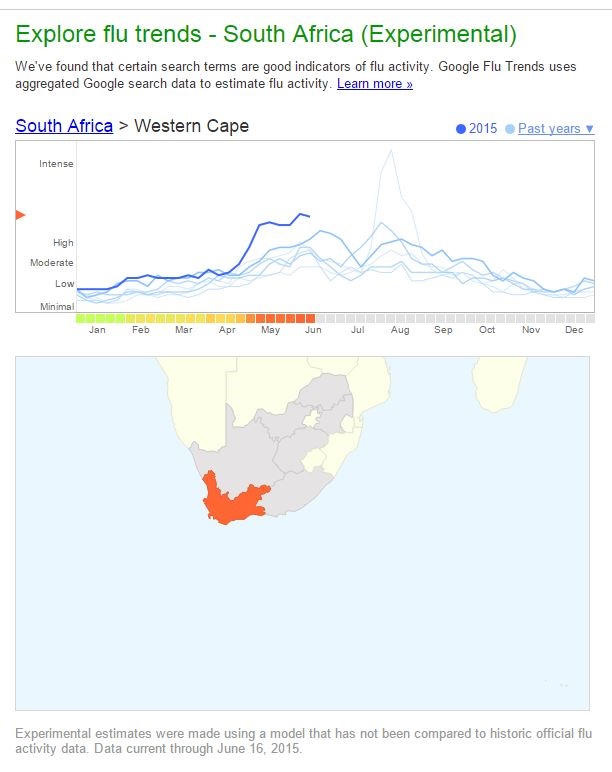
Cases of the H1N1 flu strain have been reported at schools in Cape Town (Durbanville area) and Durban, sending parents and the public into a state of panic.
However, there's no need for alarm, according to NICD medical epidemiologist Dr Sibongile Walaza, who said the institute has been seeing cases since May when the flu season started.
Read: South Africans warned of severe flu strains
"What's important to note is that influenza A H1N1, known as swine flu, is now part of our seasonal strain; it was part of it since 2012," she told Health24.
"H1N1 isn't any more severe than any other strains. It's not a pandemic any more and no longer called swine flu."
Walaza explained that when the H1N1 strain was seen for the first time in 2009, it was referred to as a pandemic partly because the virus shifted from pigs to humans.
Infograph: Five things you need to know about the flu vaccine
Pandemic strains tend to circulate for a while, after which they become part of the normal spectrum of seasonal influenza. This is what happened to the H1N1 pandemic strain.
The NICD says that getting vaccinated is the safest and the best way to help prevent influenza, which is a contagious respiratory illness that may be transmitted through the air via vapour droplets in sneezes and coughs. Although April and May are the best times to get vaccinated ahead of the flu season, it's not too late to get your vaccination.
The vaccination will not make you sick (although the site of injection might be slightly sensitive), and it takes two weeks before it provides immunity against the current influenza strains.
Read: Sore throat gargles and remedies that work
Some of the symptoms of influenza include having a high fever with chills, a cough, a sore throat, a blocked nose, sweating and shivering, muscle aches and pains and fatigue.
People more vulnerable to getting the flu are the elderly, children, pregnant women and people with chronic illnesses such as diabetes, asthma, lung disease and heart disease.
Children younger than 6 months are too young to get a flu shot, and groups of people who should be very cautious about getting the shot include those with egg allergies; people who have had Guillain-Bare Syndrome (GBS), which is a rare, paralysing condition; and those who are already ill and have a fever.
Image:Google Flu Trends map show high flu activity in the Western Cape (18 June 2015)
- Make your own flu shot
- Tweaking flu vaccine for better protection
- Most South Africans go to work when they have the flu
Image: Flu risk from Shutterstock




 Publications
Publications
 Partners
Partners















